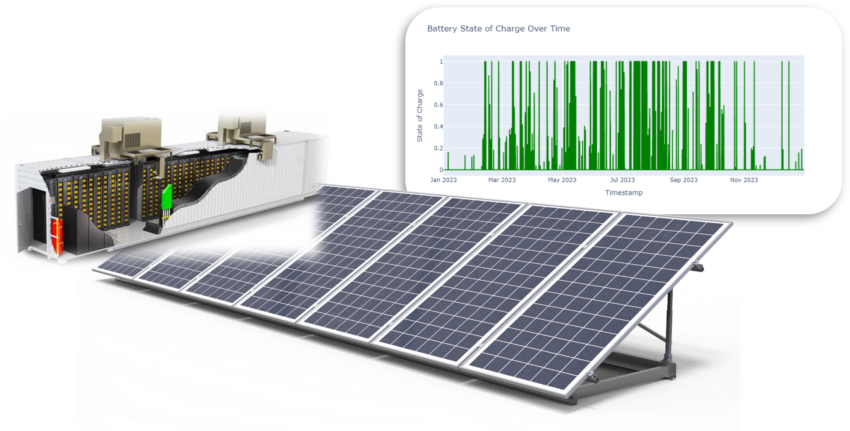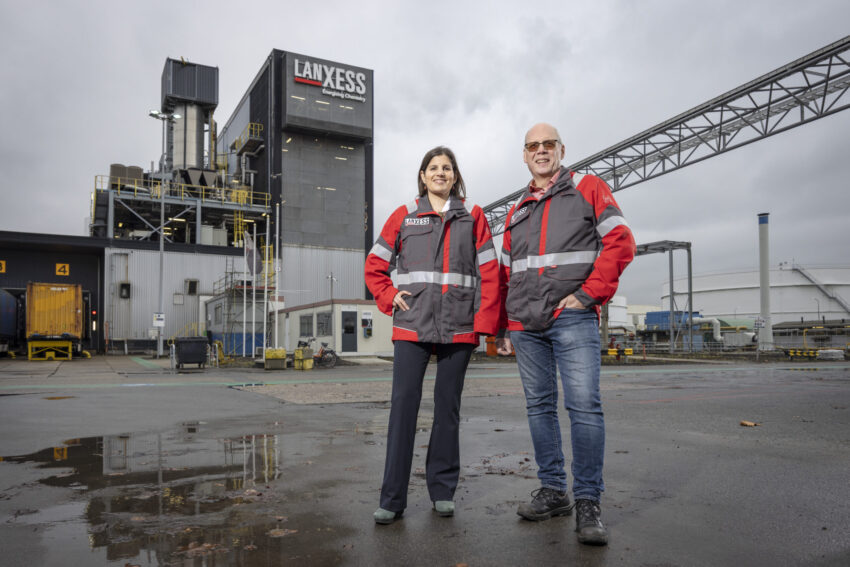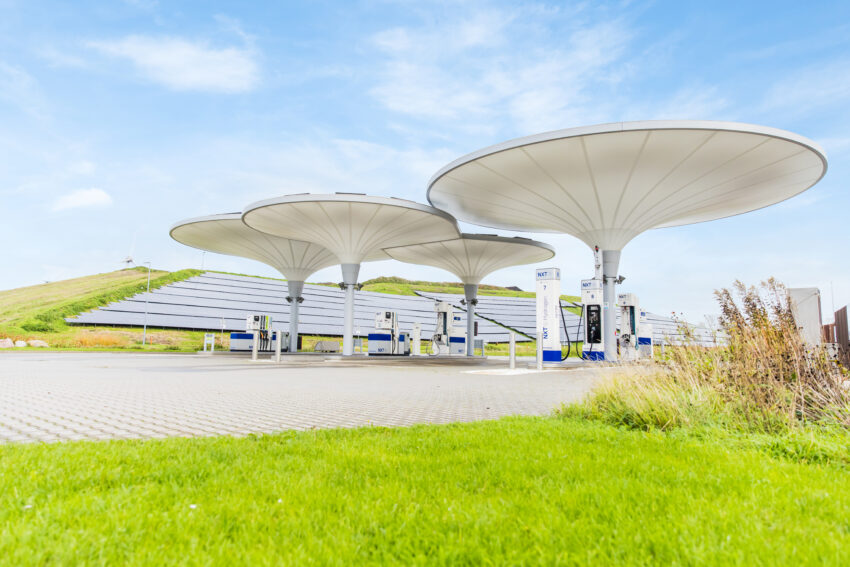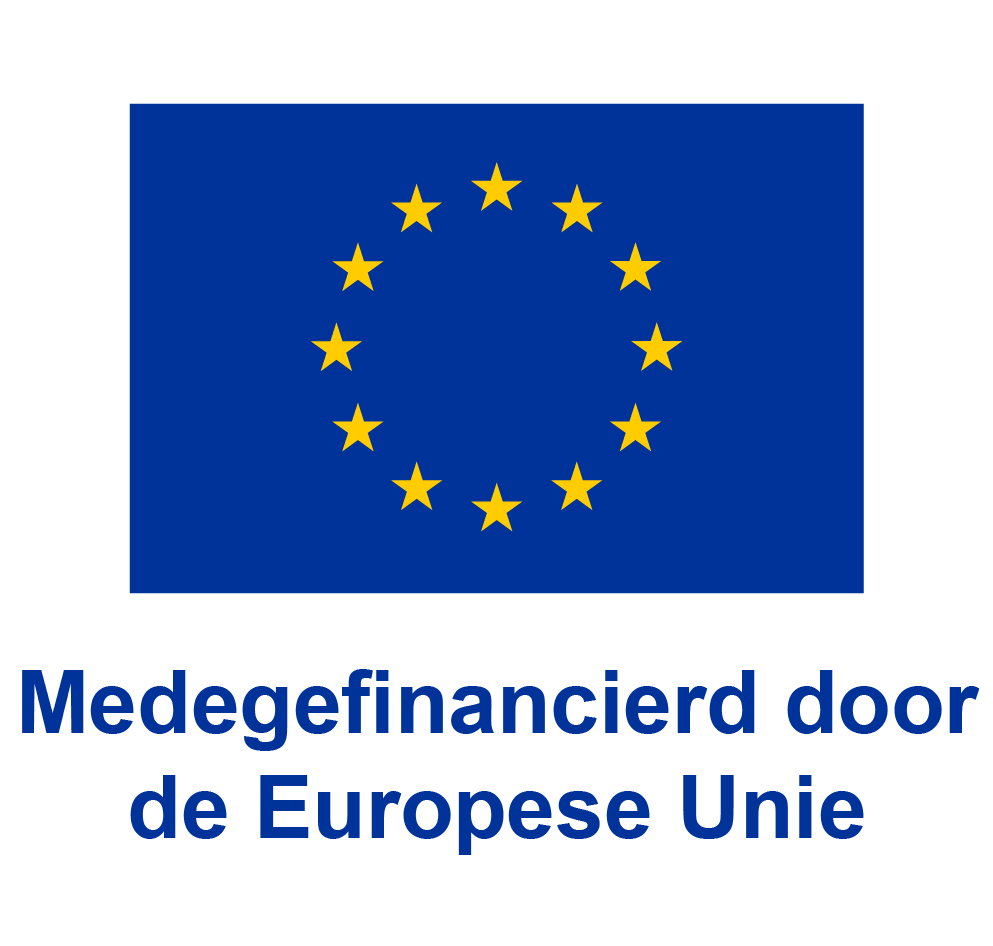PEOPLE Project: training and upskilling for the Rotterdam port of the future
For a future-proof Rotterdam port with zero CO2-emissions, thousands of skilled workers are needed. Companies, educational and knowledge institutions have joined forces in the PEOPLE Project. The Fieldlab Industrial Electrification (FLIE) is affiliated to this project and is working on the development of a digital twin platform, which will make it possible to offer education beyond the lecture bench. This is necessary to prepare future employees for the electrification of industry.
Power to Energy Transition and Organising Port Learning Experiences, that is what PEOPLE stands for. The project, which combines a number of already existing public-private partnerships (PPPs) to achieve the desired upscaling, received a grant of EUR 4.3 million from the National Growth Fund. This 'Scaling up sustainable PPPs in vocational education' grant will not only train new employees, but the project also focuses on retraining employees who do not yet have the knowledge and skills needed in the future.
Peter Kroon, programme coordinator Human Capital Energy Transition, is involved in the PEOPLE Project on behalf of Rotterdam University of Applied Sciences. "The existing public-private collaborations for the port industry are good, from PEOPLE we are specifically looking to connect these initiatives so that we can strengthen each other. In doing so, we have looked at what we still lack and need to add in order to achieve that scale-up. We have a number of field labs, but how can we upgrade them so that other target groups can also use them? We have certain equipment for energy transition research on the RDM Campus, let's make that available to MBO students as well. Part of the plan is also to scale up the various laboratory facilities. Students, at mbo and hbo, can do a lot of study on their laptops, but of course it's also nice to discover it in practice."
Setting up and implementing a (physical) innovation and training desk Energy Transition for businesses and education and the further development of field labs
Developing an innovative and flexible educational offer for the energy transition
Developing a simulation and data platform as a learning and practice environment for students and employees
Virtual education
Yet the virtual education component within PEOPLE is also important. Kroon: "There will be a data platform where MBO and HBO students can use sensor technology to remotely research and analyse, for example, what a wind turbine is doing. This will allow them to see what the wind force, temperature and power is and how it fluctuates. Should an additional sensor be added to measure vibrations? These are the kinds of issues they will work on concretely on the platform. But we are now also working on an optional subject for secondary school students. We also want to get this group of students enthusiastic about working on the energy transition. A lot of people are needed for the transition to succeed. My conviction is that we will only succeed if we work together."
The PEOPLE Project is also of interest to businesses. For this purpose, among others, the Centre for Energy Transition was created, a virtual environment where companies with education-related questions are directly linked to the right contact person within an educational institution.


Digital twin platform
That link with business, is one of the reasons why FLIE is involved in PEOPLE. Peter van Hooft, operations manager at FLIE: "Our focus here is mainly on the technology side. We are now creating the basis for a digital twin platform (a virtual representation of a process or system that is continuously updated with data from the physical environment, e.g. using sensors and IoT devices, -red.). One of FLIE's founding partners is FME, the business association for the technology industry. They are close to the SMEs, know what is on the minds of these entrepreneurs, what needs they have and what challenges they face. We take the feedback from the companies into account in the design of that digital twin platform."
This virtual platform links real scenarios from the business world to education that allows students real-time learning about practice. A huge win according to Van Hooft. "A lot of work is already being done on innovation within education, but you also have to think about new teaching methods such as the digital twin platform. Our intention is that the platform will soon be available to everyone and everywhere, then you become outreach also many times greater. And that applies not only to the students we are training now, it is also suitable for the people already working in the industry. You already have those in house, so train them. The process industry will increasingly move towards electrification, which brings with it new technology in which current employees also need to be retrained." Van Hooft also emphasises the shortage of well-trained employees. "Around me I hear companies saying that they are not even that concerned about issues like grid congestion or greening. They don't have enough people, that's the biggest problem."
Currently, the development of the platform is in full swing. First the functional requirements have to be defined, then the technical requirements follow and the third step is to build the platform. Van Hooft: "After these three steps, we have a platform, but after that it has to be filled in. In such a digital twin environment, for example, you want to virtually connect a wind turbine, a battery and an electrolyser. To fill in the digital twin platform, we are now writing a proposal."
'Technology readiness'
Another partner in the PEOPLE Project is TNO. Pejman Shoeibi Omrani is senior scientist Energy Transition and he deals with the digitalisation of energy systems, industry and industrial processes. Specifically for the PEOPLE Project, he develops digital tools that train students and people already working in industry to be able to implement the energy transition. "From TNO, we mainly look at what companies and society need and how we can link that demand to education in the best possible way. We provide the facilities to make the ''technology readiness' of people. For TNO, that aspect was one of the main reasons for participating in PEOPLE. We are still at the beginning. First we need to analyse and understand the needs. With that, we can determine what digital roadmap we need to create to prepare future talents and current employees for future technologies. We now have a proof of concept lie in which digital twin solutions have been worked out that are needed to understand what future energy systems and industrial processes will look like. Take renewable energy as an example. It is not available 24/7, the sun does not always shine, nor is there wind every day. This affects industrial processes. With digital twin, you can include scenarios about how the wind is going to develop in the next 24 hours and how to adjust your industrial process accordingly."
Precisely being able to look ahead is essential, he says, because there are so many new technologies. Shoeibi Omrani: "The developments with Artificial Intelligence, for example, are going so incredibly fast, much faster than we expected. It is important for students and staff to keep up with those developments and be able to anticipate them. The people working in the industry now have a lot of experience and are hard to find. We need their knowledge, but we also need to bring them along in new technologies like AI. It is good that we are acting together in this with the PEOPLE Project: education, government, knowledge institutions, business and organisations like the FLIE."
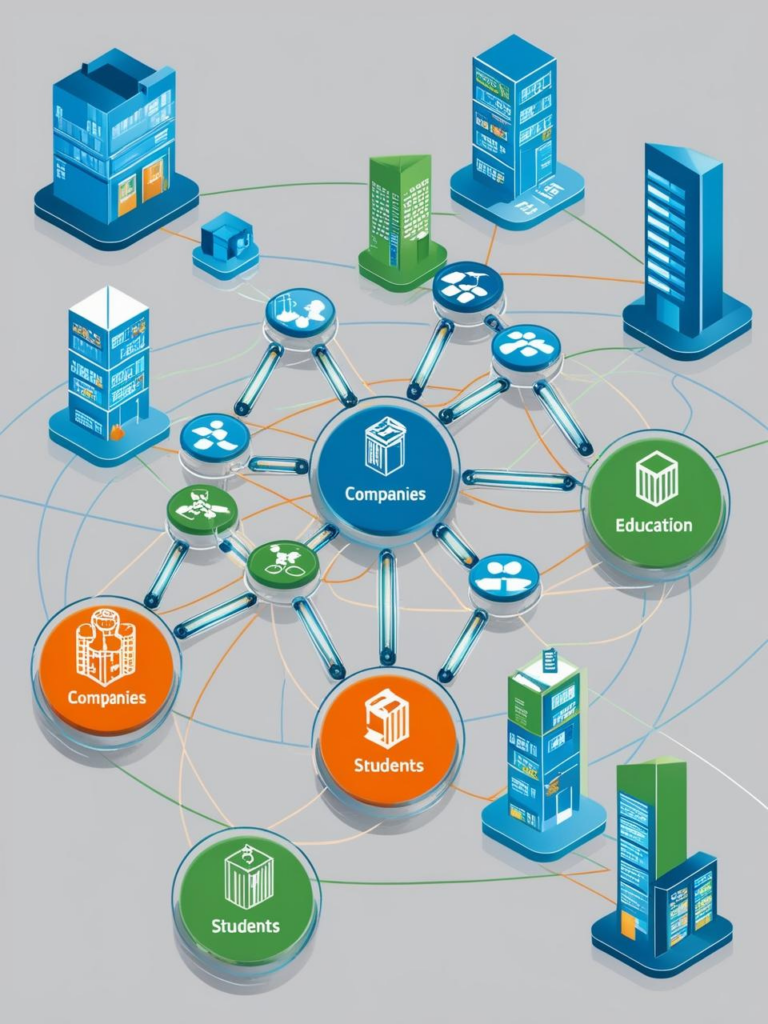
The PEOPLE Project
In the PEOPLE Project, 23 partners from education and business are working together to address the shortage of technical staff needed for the energy transition in the Port Industrial Complex (HIC). Partners include Erasmus University, Hogeschool Rotterdam, STC, Techniekcollege Rotterdam, FLIE, TNO and FME (with companies from its constituency).
Three objectives are central. More intake and throughput in education, less dropout and more outflow to the port, stimulating lifelong development for students and employees with an innovative training offer and increasing the visibility of working in energy transition, specifically in the Rotterdam port.
To realise these ambitions, the PEOPLE Project is committed to three concrete work packages:
- Setting up and implementing a (physical) innovation and training desk Energy Transition for businesses and education and the further development of field labs
- Developing an innovative and flexible educational offer for the energy transition
- Developing a simulation and data platform as a learning and practice environment for students and employees
With financial support from the National Growth Fund, the PEOPLE Project will connect, deepen and broaden existing activities, with the ambition of all partners to form an open ecosystem, attract and train sufficient human resources and realise the energy transition in the HIC.
